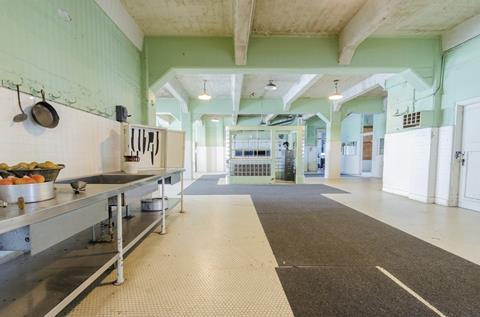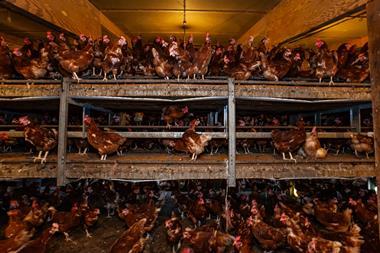
National charity Food Matters is proposing a nationwide prison food reform that links nutrition and wellbeing to security within detention hubs.
The Food Matters in Prisons report, issued last month, calls for greater transparency and accountability around food procurement, as well as increasing the minimum percentage of food domestically produced that goes into prisons.
Food Matters director Victoria Williams told The Grocer the changes the charity is advocating for are a “huge opportunity” for wholesalers, British farmers, and the wider public.
“One of our priorities is to get a larger percentage of food that is made locally into public sector contracts, and that includes prisons,” she explained.
A consultation held in 2022 established that at least 50% of food spend by HM Prison & Probation Service (HMPPS) must be on food produced domestically.
“Scaling the current value of 50% local produce is a huge opportunity to make public funds work better,” said Williams.
“It means the prison food pound could be spent better to support British farmers, produce better outcomes, boost dynamic procurement and support the wholesale industry.”
The report is the result of a roundtable attended by professional organisations, including charities, education providers, and independent monitoring boards.
According to Williams, the system “can do a lot more than just ensuring three meals a day” by focusing on activities that promote food across nutrition, career prospects, wellbeing and rehabilitation.
She said the current formula is a “missed opportunity” for the entire procurement chain.
Food Matters is also calling for higher transparency and monitoring, including more frequent reviews of public contracts, which would allow HMPPS to guarantee variety and quality, and in turn would allow wholesalers who hold the tender to adjust prices to reflect inflation and other external factors.
“The overarching agenda is around making food not just a function, but a focal point for a whole load of positive things to happen,” Williams continued.
“It is about providing food that contributes to supporting farmers, provides health and wellbeing, and reduces crime significantly.
“It is also about the financial public purse and how it can do better. Dynamic procurement can be cost-effective and make much better use of the supply chain around food.
“Prisons are very often overlooked whenever public procurement is mentioned, it’s about public schools and hospitals, but prisons are not mentioned.”
There are currently over 87,000 inmates in prison custody in the UK. It is estimated around 20% go into hospitality afterwards, if having received training while in rehabilitation.



















No comments yet